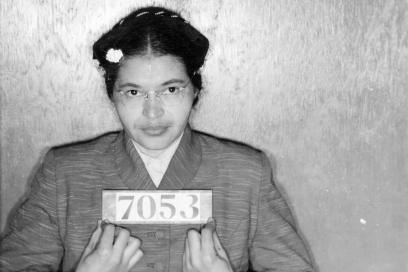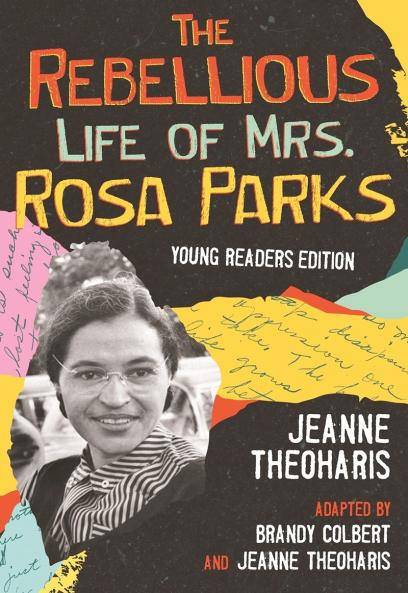True or false:
Rosa Parks refused to give up her seat because her feet were tired after a long day of work.
False.
While it is true that Rosa Parks, a Black woman, refused to give up her seat to a white man on a segregated bus in Montgomery, Ala., it wasn’t because she was physically tired. “The only tired I was, was tired of giving in,” she said later.
It’s an important difference and a good one to learn during the month dedicated to Black history. Rosa Parks was a long-time, active member of the civil rights movement and the Black Power movement. Her refusal and arrest that December day in 1955 was not a solitary act of defiance but part of a long life of activism that stretched before and after the incident. Now a new film, The Rebellious Life of Mrs. Rosa Parks, tells the fuller story, and the AFT has partnered to launch a film tour to make sure as many people as possible learn this true history so they can properly celebrate one of the most recognizable heroes of the civil rights movement for all her accomplishments, not just one iconic moment.
The film is representative of the larger goal that educators be free to teach American history in its entirety, and it is especially crucial as the movement to limit how our children learn about race and gender threatens to narrow access to knowledge about true history.
“While some are banning AP African American Studies, we’re working to help ensure that students have access to stories about people like Rosa Parks,” said AFT President Randi Weingarten during a post-screening discussion at the film’s kickoff event. She was referring to Florida Gov. Ron DeSantis’ rejection of the new AP course from the College Board. “My ask to all who attended the screening in Detroit, and to all of you across America, is to have teachers’ backs when they are out there trying to teach honest history.”
Partnering with the film’s executive producer and high-profile journalist Soledad O’Brien, the film tour launched on the 110th anniversary of Parks’ birthday, Feb. 4, in Detroit, where Parks and her husband lived after leaving Montgomery. The kickoff included discussions with O’Brien, film directors Yoruba Richen and Johanna Hamilton, and author and AFT member Jeanne Theoharis, who wrote the book on which the documentary is based. Another discussion explored how Parks’ legacy connects to today’s fight for voting rights and the movement to teach true history, and featured Weingarten; Michigan Secretary of State Jocelyn Benson; activist JoAnn Watson, who appeared in the film; and Parks’ grandnephew Lonnie McCauley. Also on hand was the Rev. Dr. Wendell Anthony, president of the Detroit NAACP.
During the kickoff event, the AFT gave away more than 2,000 books to students, families, community activists, faith leaders, educators and others who attended the screening; the mix of fiction and nonfiction selections focused on civil rights leaders and issues, and included young adult and adult versions of Theoharis’ book.
Outside the screenings, the AFT’s Share My Lesson online educator resource offers a free webinar about Rosa Parks featuring clips from the film and Theoharis discussing her book; a teaching packet to go with the film; and another lesson plan that focuses on northern racism through the lens of Parks’ experience in Detroit. The film itself is available through NBC Peacock.
“Too often we trap her on the bus on a long ago December evening, refusing what her legacy asks of us today,” tweeted Theoharis on the eve of Parks’ birthday. She notes in her book and elsewhere that Parks was secretary of the Montgomery NAACP for 12 years before she was arrested for refusing to give up her bus seat. She attended the well-known Highlander Folk School sessions on desegregating schools that same year. She supported the Black Power movement, worked to expose police brutality in Detroit, led marches against housing discrimination and founded a job-training organization for young Black boys. Far from the little old lady on the bus, Rosa Parks was a racial justice radical.
“It’s important that we remember and that we continue to teach that very important information, because if we don’t know our history, we are destined to repeat it,” said Lakia Wilson-Lumpkins, president of the Detroit Federation of Teachers, which helped host the event. “Rosa Parks proved to all of us that we all can be a catalyst for change.”
“Our job as teachers is to tell the stories that make people want to read and that also show the breadcrumbs to the solutions,” said Weingarten. “That’s part of the teaching of honest history.”
[Virginia Myers]



